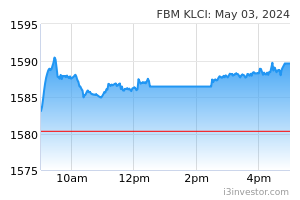Top 10 Financial Habits of Warren Buffett
intelligentinvesting
Publish date: Mon, 01 Aug 2016, 12:54 PM

Habit #1 Stay Out of Debt and Save
- Live below your income.
- Save your money.
- Avoid debt. Stay away from credit cards.
Habit #2 Read, Study, Learn
- Read everything you can.
- Understand business and accounting.
- Learn everything you can about investing and potential investments before you invest.
- Think through the investment process.
- Research businesses and their histories.
- Learn how to determine intrinsic value.
- Set goals for yourself.
- Emulate the best in every field of endeavor.
- Learn from your mistakes.
Habit #3 Buy Businesses
Wealth is created and preserved through owning businesses. Begin investing early in life. Buying a business usually means buying shares of stock in a company. As a stockholder, you own a portion of the business. You should use the same criteria for deciding to buy a stock as you would use for deciding to buy the entire company. Before you buy shares in a company, consider whether you would buy the entire business. Invest in companies that you really like and that earn money. Use those earnings to buy more businesses.
Habit #4 Understand What You Own
Know and understand the businesses in which you own shares. Study and analyze what is going on inside the business, not what is going on in the outside markets. The business should be simple. Never invest in a business you cannot understand. You should be able to explain to an 8-year-old child in one or two sentences how the company makes a profit. You should know enough about an investment to be able to calculate its value.
Habit #5 Invest in Value
You should determine a business’ intrinsic value and buy it at a fair or bargain price. Look for companies with:
- Above-average returns on equity, regardless of earnings per share
- Sustainable earnings
- Consistent operational history
- Good four- or five-year averages, rather than just yearly results
- High profit margins
- Consumer products and brand names that enable the companies to raise their prices above the rate of inflation
- Products such as food that are recession- and depression-proof
- Barriers to outside competition
- Good long-term prospects
- Opportunities for future growth
- Competent and honest management
Habit #6 Choose Well-Managed Businesses
Choose businesses that have rational and competent management. The management should be open and honest with shareholders. The management should resist the “institutional imperative,” which is the tendency to imitate other corporate managements, even when their behavior is irrational or dishonest. Nevertheless, the intrinsic quality of a business is more important than its management.
Habit #7 Invest for the Long Term
Maintain a focused, low-turnover portfolio. Always make the decision to buy a stock based on owning it for the long term. The best investments are companies that have low-capital requirements and products that people will always want to buy. Resist the urge to buy and sell investments. Inactivity is usually preferable to action. Invest for the long term, rather than constantly investing in broadly diverse prospects for the short term.
Habit #8 Maintain a Margin of Safety
Investment risk comes from being an unprepared, uninformed investor. Ensure a margin of safety with each of your investments. Your margin of safety comes from getting more intrinsic value than you are paying for when investing. Moreover, your margins of safety insulate you from mistakes in judgment and business cycles and unforeseen events. Investment risk can be also be greatly reduced by concentrating on only a few holdings.
Habit #9 Ignore the Stock Market
- Judge a business by its fundamentals, not by short-term changes in its stock price.
- Understand the difference between investments and speculation.
- Avoid the speculative and emotional market forces.
- Do not try to predict the direction of the stock market, interest rates, the economy or elections.
- If you cannot watch your stock portfolio decline by 50% without panicking, you should not be investing in the stock market.
Habit #10 Give Back to Society
When you can afford it, donate some of your wealth to worthy causes and for the betterment of society. You can always contribute your time and effort to deserving charitable foundations and organizations. Mr. Buffet has donated around 85% of his wealth (over $37 billion in 2006) to help solve some of the major problems in the world.
Kindly like our FB page for more UPDATE,



















